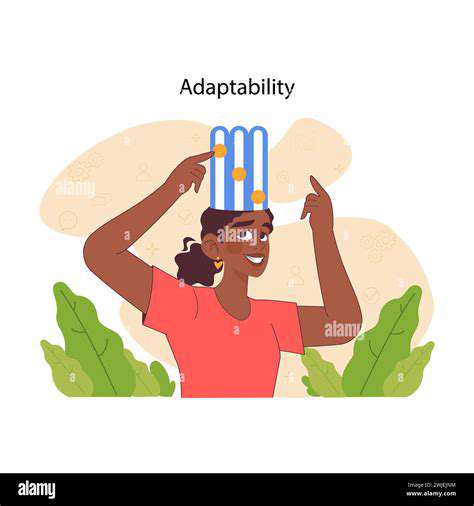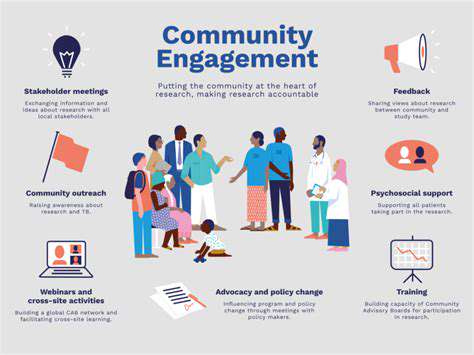Voluntourism Done Right: Ethical Ways to Give Back
What is Voluntourism?
Voluntourism, a portmanteau of volunteer and tourism, encompasses travel experiences that integrate volunteer work with leisure activities. It's not simply a vacation; it's an opportunity to contribute to a cause while experiencing a new culture. This blend of travel and service can be a rewarding experience for both the traveler and the community they interact with, but it demands careful consideration to ensure both parties benefit.
However, it's crucial to understand that voluntourism is not a universal term with a single definition. Its application can vary, and sometimes the focus may shift more towards the tourist experience than the volunteer work itself. The key is to find organizations that prioritize community benefit and sustainable practices.
The Potential Benefits of Voluntourism
Voluntourism can provide numerous benefits. For volunteers, it offers the chance to learn new skills, broaden their perspectives, and gain a deeper understanding of different cultures. It can also contribute to personal growth and build empathy for others. For the host communities, voluntourism can provide much-needed assistance with local projects, from infrastructure development to environmental conservation.
However, it's vital to remember that voluntourism's impact is not always positive. Unscrupulous operators can exploit the system, leading to poorly executed projects and minimal community benefit. Consequently, it is essential to research and choose organizations that prioritize community needs and implement ethical practices.
Ethical Considerations in Voluntourism
One of the most critical aspects of voluntourism is ensuring that it's conducted ethically. This means prioritizing the needs and well-being of the host community over the desires of the tourist. It's crucial to avoid exploitative practices that may undermine local economies or cultures. Genuine volunteer work should complement existing local initiatives, rather than replacing them.
Organizations should be transparent about their operations and accountable to the communities they serve. Volunteers should be properly trained and supervised to ensure their activities are effective and respectful. Ultimately, ethical voluntourism promotes sustainable and mutually beneficial relationships between travelers and host communities.
Finding Reputable Voluntourism Organizations
Finding reputable voluntourism organizations is essential for a positive experience. Look for organizations that have a strong track record of community engagement and demonstrably benefit local communities. Research the organization's mission, values, and impact reports. Transparency in their operations and financial accountability are key indicators of a reputable provider.
Seek out organizations that prioritize local input and ensure that the projects they support align with the community's needs. Don't hesitate to contact past participants for testimonials and feedback on the organization's work. Thorough research will help you identify organizations dedicated to genuine community development through ethical and sustainable practices.
Sustainable Voluntourism Practices
Sustainable voluntourism goes beyond simply helping a community; it aims to contribute to long-term, positive change. This involves respecting local traditions, customs, and environments. Volunteers should be aware of cultural sensitivities and avoid imposing their own values or expectations on the communities they interact with. Protecting local environments is essential, and volunteers should be mindful of their impact on the surrounding ecosystem.
Moreover, sustainable voluntourism practices should support local economies by purchasing goods and services from local businesses whenever possible. This ensures that the economic benefits of tourism reach the community directly, rather than being channeled through external entities. By prioritizing these sustainable practices, voluntourism can become a powerful force for positive change, promoting long-term growth and well-being for both visitors and the communities they interact with.
Focusing on Sustainable and Long-Term Impact

Sustainable Practices in Agriculture
Sustainable agricultural practices are crucial for ensuring food security and environmental protection for future generations. These practices focus on minimizing environmental impact while maximizing productivity. This includes techniques like crop rotation, cover cropping, and integrated pest management, which help maintain soil health and reduce the need for synthetic fertilizers and pesticides. By adopting these methods, farmers can create more resilient and productive agricultural systems, which are essential for long-term food production.
Implementing sustainable agricultural practices can also lead to numerous economic benefits. Farmers can reduce input costs by minimizing reliance on external inputs. This can lead to greater profitability over the long term. Furthermore, sustainable agriculture can enhance the quality and nutritional value of crops, appealing to consumers seeking healthier options.
Long-Term Economic Viability
Focusing on long-term economic viability is essential for ensuring the sustainability of any business, including agricultural operations. This means planning for the future and considering the long-term implications of current decisions. A sustainable approach to agriculture not only protects the environment but also safeguards the economic future of farmers and communities. This requires strategic investments in technology, infrastructure, and human capital to enhance productivity and resilience.
Environmental Impact Mitigation
Minimizing the environmental impact of agricultural practices is paramount for preserving biodiversity and ecosystem health. Sustainable farming methods aim to reduce greenhouse gas emissions, protect water resources, and conserve biodiversity. This involves employing techniques like precision agriculture, which uses data-driven insights to optimize resource use and reduce waste.
Sustainable agriculture fosters responsible resource management, preventing soil erosion, and safeguarding water quality. These practices contribute to a healthier environment for present and future generations.
Technological Advancements
Embracing technological advancements is crucial for improving efficiency and sustainability in agriculture. Precision agriculture technologies, such as GPS-guided machinery and sensor-based monitoring, enable farmers to optimize resource use and minimize waste. These advancements not only increase productivity but also reduce environmental impact. The use of advanced technologies can enable farmers to make data-driven decisions, leading to greater efficiency and reduced costs.
Community Engagement and Education
Sustainable agriculture is more effective when supported by strong community engagement and education initiatives. Community participation can foster a sense of shared responsibility and promote the adoption of sustainable practices. Education plays a key role in raising awareness about the importance of sustainable agriculture and empowering individuals to make informed choices. Through workshops, training programs, and community forums, individuals can gain a deeper understanding of sustainable agricultural practices.
Policy Support and Incentives
Government policies and financial incentives can play a significant role in encouraging the adoption of sustainable agricultural practices. Policies that support sustainable agriculture can create a favorable environment for farmers to invest in new technologies and practices. Offering financial incentives, such as tax breaks or subsidies, can further motivate farmers to adopt sustainable methods. This support can pave the way for a more sustainable and resilient agricultural sector.
Market Demand and Consumer Awareness
Growing consumer demand for sustainable and ethically sourced food is driving the evolution of agricultural practices. Consumers are increasingly seeking products that align with their values concerning environmental protection and social responsibility. This growing demand creates a market opportunity for farmers who adopt sustainable practices. Educating consumers about the benefits of sustainable agriculture can further enhance the market demand for these products.
Read more about Voluntourism Done Right: Ethical Ways to Give Back
Hot Recommendations
- Silent Walking Retreats: Mindful Movement
- The Benefits of API Integration in Travel Platforms
- Architectural Wonders: Marvels of Human Design
- The Benefits of Group Wellness Travel
- How to Choose the Perfect Travel Destination
- From Offline to Online: The Automation Journey for Travel Agencies
- Travel Photography Essentials: Capturing Breathtaking Shots
- Wellness Travel for Grief and Loss: Finding Comfort
- Responsible Diving and Snorkeling Practices
- The Connection Between Travel and Longevity











